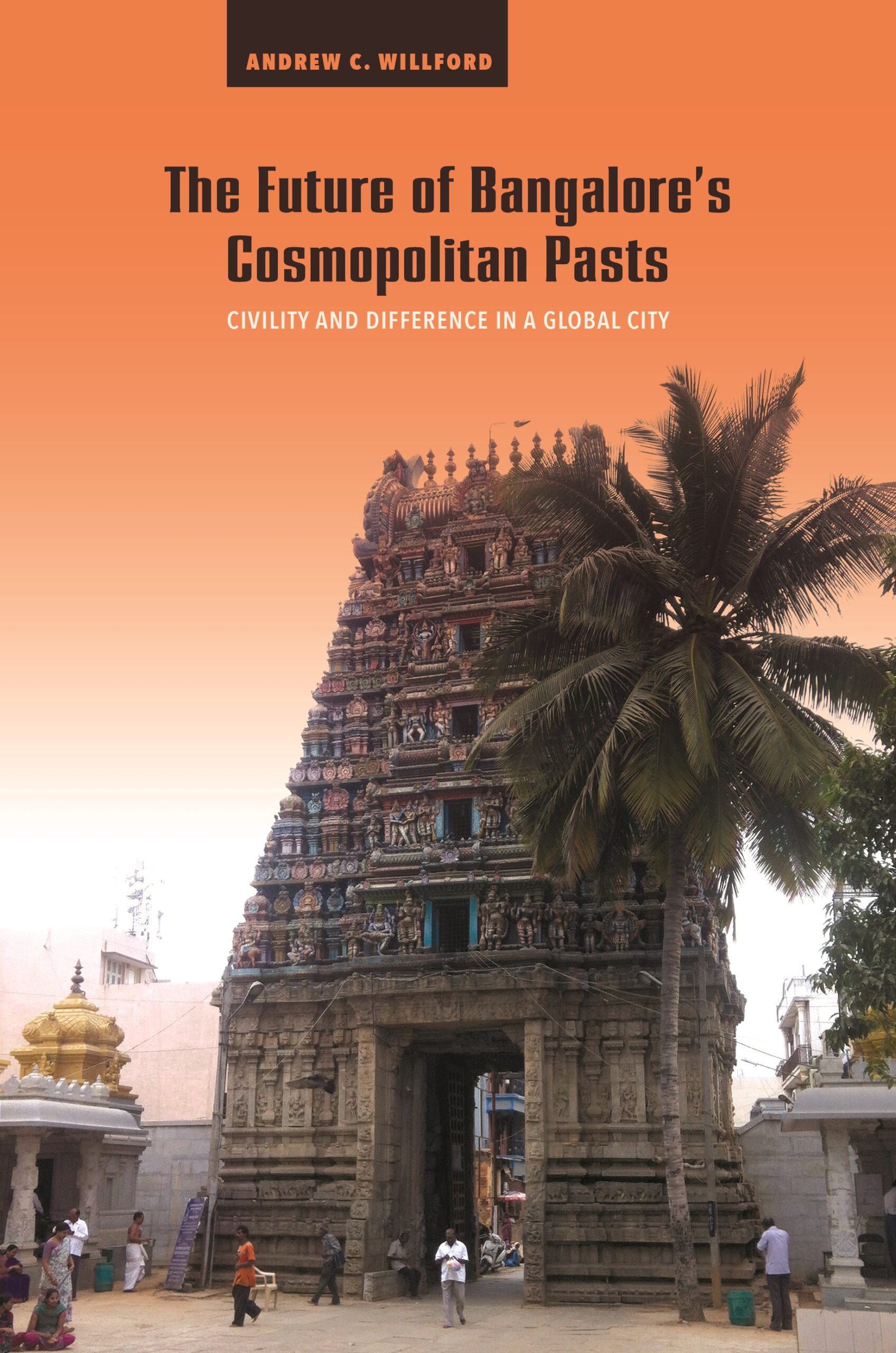The Future of Bangalore’s Cosmopolitan Pasts: Civility and Difference in a Global City
- About the Book
-
Bangalore is often heralded as India’s future—a city where global technologies converge with multinational capital to produce a cosmopolitan workforce and vibrant economic growth. In this narrative the city’s main challenge revolves around its success: whether its physical infrastructure can support its burgeoning population. Most observers assume that Bangalore’s emergence as a “global city” represents its more complete integration into the world economy and, by extension, a more inclusive and cosmopolitan outlook among its growing middle class.
Andrew C. Willford sheds light on a growing paradox: even as Bangalore has come to signify “progress” and economic possibility both within India and to the outside world, movements to make the city more monocultural and monolinguistic have gained prominence. Bangalore is the capital of the state of Karnataka, its borders linguistically redrawn by the postcolonial Indian state in 1956. In the decades that followed, organizations and leaders emerged to promote linguistic nationalism aimed at protecting the fragile unity of Kannadiga culture and literature against the twin threats of globalization and internal migration. Ironically, they support parochial cultural policies that impose a cultural and linguistic unity upon an area that historically stood at the crossroads of empires, trade routes, language practices, devotional literatures, and pilgrimage routes. Willford’s analysis, which focuses on the minority experience of Bangalore’s sizeable Tamil-speaking community, shows how the same forces of globalization that create growth and prosperity also foster uncertainty and tension around religion and language that completely contradict the region’s long history of cosmopolitanism.
Exploring this paradox in Bangalore’s entangled and complex linguistic and cultural pasts serves as a useful case study for understanding the forces behind cultural and ethnic revivalism in the contemporary postcolonial world. Buttressed by field research conducted over a twenty-two-year period (1992–2015), Willford shows how the past is a living resource for the negotiation of identity in the present. Against the gloom of increasingly communal conflicts, he finds that Bangalore still retains a fabric of civility against the modern markings of cultural difference.
- About the Author(s)
-
Andrew C. Willford, Author
Andrew C. Willford is professor of anthropology at Cornell University.
- Reviews and Endorsements
-
- Andrew Willford’s book on Bangalore examines the technologies of state-craft—in particular the creation of linguistic states in 1956—and other postcolonial processes that create “serial” forms of identification. It speaks to theory while offering a variety of interesting cases—such as the capture of Kannada matinee icon Rajkumar by the Tamil bandit Veerappan—and an exploration of festivals, temples, and other sites. Willford’s driving question—what conditions make urban civility possible within a context of difference—is a productive one.
—Smriti Srinivas, University of California, Davis - This is an important and path-breaking analysis of the politics of nationalism and identity in a postcolonial context marked by hybridity. Focusing on Bangalore, “the crossroads of the Deccan,” the author shows how increasingly strident linguistic and religious nationalisms have buried, but not erased, the cosmopolitan histories of the region. The book is unique in not just looking at how singular constructions of identity become increasingly entrenched, but also how plural selves continue to assert themselves. Holding these two tendencies in tension is what makes this book exceptional and important in the field.
—Kalyani Menon, DePaul University
- Andrew Willford’s book on Bangalore examines the technologies of state-craft—in particular the creation of linguistic states in 1956—and other postcolonial processes that create “serial” forms of identification. It speaks to theory while offering a variety of interesting cases—such as the capture of Kannada matinee icon Rajkumar by the Tamil bandit Veerappan—and an exploration of festivals, temples, and other sites. Willford’s driving question—what conditions make urban civility possible within a context of difference—is a productive one.
- Supporting Resources
-










